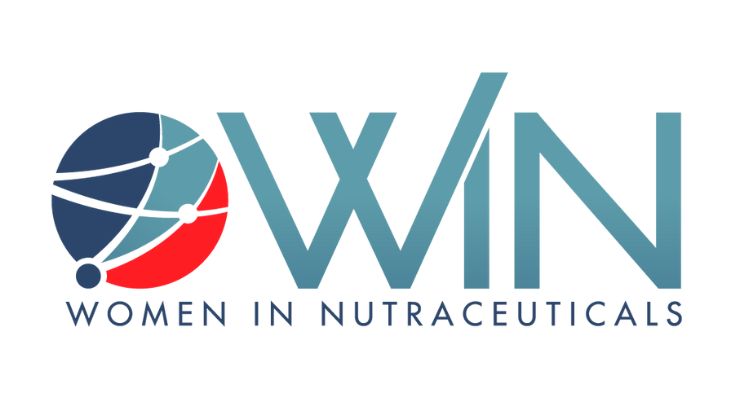Exclusives
Why Gender Equality Must Be Prioritized
It will take continued focus and support to bring more women into senior leadership as commitment to diversity appears to be declining in the U.S.
By: Heather Granato

This summer, I had an enjoyable afternoon at the Phoenix Art Museum checking out “Barbie: A Cultural Icon Exhibition.” From the original doll to her global impact on culture, it was a fascinating trip through history. Barbie made it to the moon and the U.S. presidency before actual women, and she’s been everywhere from the research lab to the C-suite. Interestingly, in the “Barbie” movie in 2023, the story explored the men in corporate looking to keep her in the box.
It’s unfortunate to realize that in real life, while there has been meaningful progress toward gender parity in corporate leadership in the U.S. in the past decade, according to the Women in the Workplace 2024 report from LeanIn.org and McKinsey & Company, there are concerning trends around commitment at an individual and organizational level that are challenging this forward momentum.
First, consider the issue of management pipeline. McKinsey found progress remains stagnant at the entry-level (48%) and manager (39%) levels, with only 81 women promoted to manager for every 100 men, leaving women underrepresented from the very beginning, which makes sustained progress nearly impossible. Further, gains at the senior leadership levels were driven by consolidation of line roles, while in the C-suite, the biggest increase was seen in staff functions such as chief human resources officer or chief legal officer.
Of greater concern was that company commitment to diversity is declining. In 2024, only 78% of companies say gender diversity is a high priority, down from 87% in 2019. Formal support for women is also sliding, as only 37% of companies offer formal mentorship programs for women, down from 48% only two years ago. And while managers are being asked to do more to support employee wellbeing and inclusion, they are often evaluated and rewarded for progress based solely on business goals, which leads them to place less focus on building an inclusive culture.
Similar insights were offered in a March 2024 report from S&P Global, which clocked a decline in diversity initiatives on earnings calls. During S&P 500 earnings calls in 2020, mentions of “diversity” and “inclusion” hit 1,367 times; mentions for the 2023 fiscal year were the lowest since 2012. Their modeling also suggests that parity in the C-suite may be delayed 6 to 7 years, compared to 2022 estimates.
This may also be reflected in recent findings from the U.S. Census bureau, which showed the gender wage gap between men and women working full-time widened year-over-year from 2022 to 2023 for the first time in 20 years; women working full time earned 83 cents on the dollar compared to men. They found the 2023 median incomes of working men increased 2.6% from 2022, while median earnings for working women decreased by 2.0%. Interestingly, the report came out just weeks after the U.N. observed International Equal Pay Day; they report that globally women earn 77 cents for every dollar men earn for work of equal value, a gap that increases for women with children.

How WIN Plans to Inspire Change
In the nutraceutical industry, it is estimated that the majority of purchasers are women — whether for their own health concerns or those of their family. For companies looking to accelerate product usage and increase customer lifetime value, having increased gender representation at every level of the organization may positively impact innovation and go-to-market strategy.When Women In Nutraceuticals (WIN) was founded in 2022, its strategic objectives included seeing more women in executive leadership, more women in science, and more funding for women-led businesses. At SupplySide West, WIN is releasing its updated objectives — including the three already mentioned — as well as new initiatives to drive positive change. At the top of the list is the importance of developing credible metrics for WIN and for the industry itself.
One of WIN’s original initiatives was the Gender Representation in Nutraceutical Industry Leadership Survey, published in 2023, which found that 37% of senior leadership roles and 28% of CEO positions in the nutraceutical industry are held by women. WIN is committed to seeing an increase in women in senior leadership; its pilot mentorship program this year and the upcoming launch of a training module assessing leadership readiness are among the offerings to support this work.
It will take continued focus and support to bring more women into senior leadership, but the desire is certainly there. Consider the level of celebration when Chioma Ikonte, PhD, recently posted on LinkedIn about joining Lief Labs as Chief Science Officer; in her comments, Yasmeen Nkrumah-Elie, PhD, global director of external research at ChromaDex, cheered her recognition as possibly the first black woman to be a CSO in the nutraceutical industry. Who might be next, and which companies are investing in elevating women into every part of the C-suite?
WIN is planning to invest in an update to its 2023 report, to be published in 2026, which will explore more data points to offer a benchmark for future goal-setting. In addition, one of the announced initiatives is to develop tools and resources to support companies that are seeking to accelerate their own work around gender equality. There are many steps that companies can take to make systemic change to impact culture, and WIN is seeking best practices from its member organizations to inspire change. Among the key areas McKinsey called out for companies to consider:
- De-bias the hiring and promotions processes;
- Inspire and equip employees to curb bias and practice allyship; and
- Unlock the power of managers to influence careers and team culture.
McKinsey further offers a list of recommended “Common and Emerging Practices” that can improve equity and inclusion in the workplace. From stated commitments with trackable metrics to investing into career development and employee benefits, there is an opportunity to take incremental steps toward a more positive and equitable future.
McKinsey’s report authors noted: “The next phase of change will require even more tenacity, creativity, and optimism — and that starts with rekindling the commitment to diversity and fairness that got us to this point. For senior leaders, it means continuing to champion the important work and challenging yourself and your organization to do better.”
About the Author: Heather Granato is a 30-year veteran of the natural products industry and founding president of Women In Nutraceuticals (WIN). The founder of strategic business consultancy Nutrachievement, she also serves on the board of directors for the Organic & Natural Health Association. She is an international moderator and presenter with multimedia publishing experience, and has been recognized with awards from FOLIO:, the American Herbal Products Association (AHPA), and the United Natural Products Alliance (UNPA).
Join WIN @ SSW 2024
#WINTogether Gender Equity reception on Tuesday, Oct. 29 (4 to 5:30 pm) — Register Here.WIN Year in Review & Update Meeting — Thursday, Oct. 31, 8:30 to 9:30 am, Islander F. This meeting is open to all WIN members, sponsors and those interested in finding out more about WIN. We will be reviewing our year and providing some exciting updates about initiatives that are in the works.


